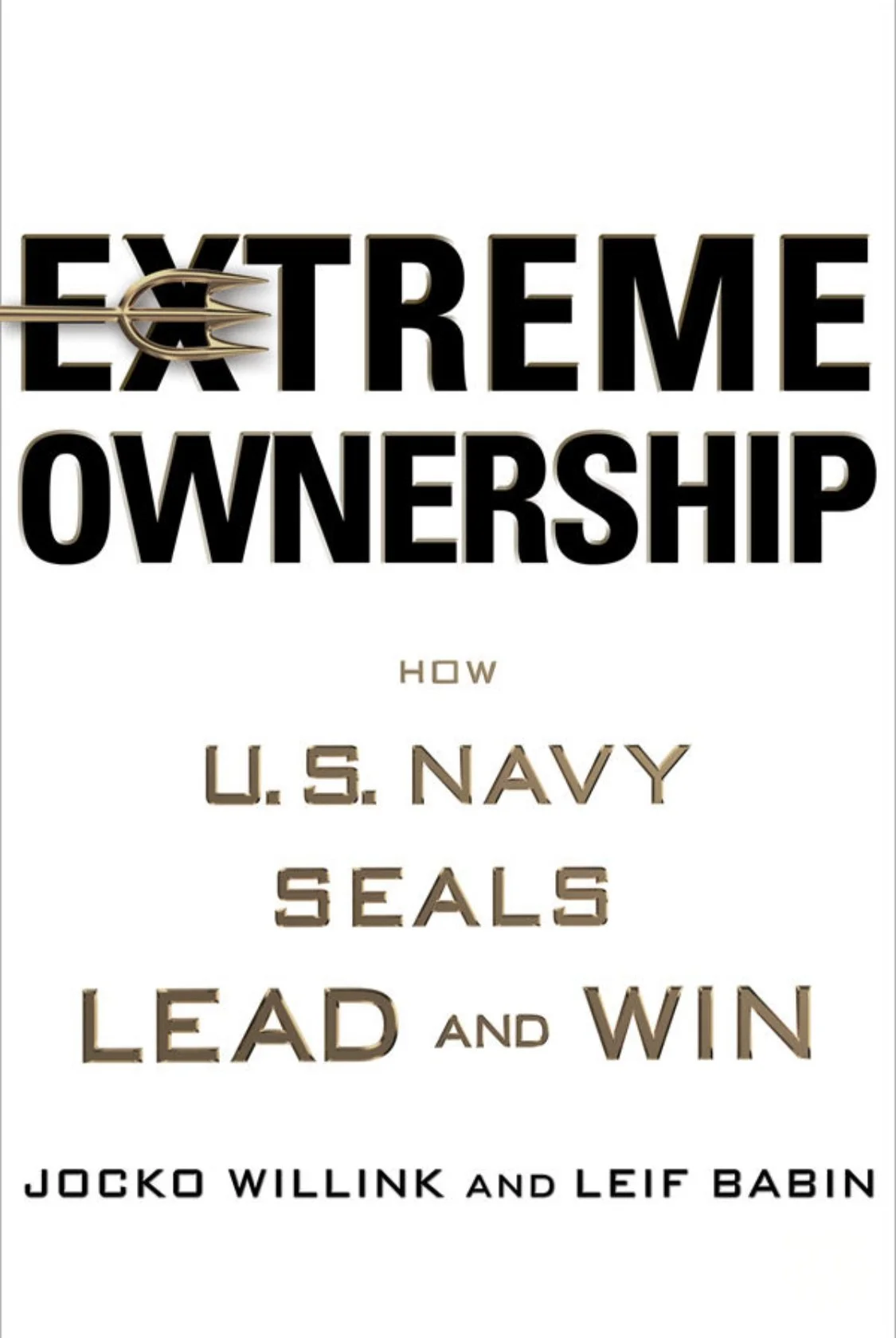10 Things I’ve Learned from Extreme Ownership by Jocko Willink
And why taking the blame can actually set you free.
I picked up Extreme Ownership during a season where I felt stuck. I wasn’t sure if the obstacles I was facing were because of me, or just life happening to me. I wanted a framework—not just for leadership at work, but for how to approach the responsibilities piling up in life. I didn’t expect to get called out so hard in the first few pages.
This book doesn’t coddle you. But it does give you a blueprint. And it starts with a simple, difficult truth:
Take full responsibility—even when it’s not your fault.
At first, that idea felt unfair. But the more I sat with it, the more I realized: ownership equals power. When I stop blaming and start owning, I’m no longer waiting for someone else to make it right. I’m in control. I can move forward. I can lead.
Here are ten lessons that stuck with me—and how I’ve started to apply them in real life:
1. Own It, Even If It’s Not Your Fault
This was the hardest concept to accept—and the most transformative. We all want to defend ourselves when something goes wrong. But when I started saying, “It’s on me,” I stopped spiraling. I stopped wasting time arguing, resenting, or explaining. I just got to work fixing it.
Owning the outcome—even when the situation wasn’t ideal—let me move forward with clarity. And more often than not, people respected me more for it.
2. There Are No Bad Teams, Only Bad Leaders
This one made me rethink every group project, job, or team I’ve been a part of. It’s easy to blame teammates for poor results, but Jocko challenges that mindset: if the team isn’t performing, it’s because leadership hasn’t stepped up.
Leadership doesn’t always mean having a title. It means taking initiative, offering support, and helping others rise to the occasion. I’ve seen firsthand how one person taking ownership can change the energy of an entire group.
3. Discipline Equals Freedom
The idea sounds backwards, but it’s dead-on. I used to think freedom meant no structure—just going with the flow. But when I started creating routines, setting deadlines (even self-imposed ones), and staying disciplined in my habits, life felt easier.
When you handle the hard stuff early—your workouts, your work priorities, your meals—you create space to actually enjoy your day without guilt or chaos.
4. Detach Emotionally to Make Better Decisions
When you're in the middle of a stressful situation, it's easy to get tunnel vision. Jocko teaches the importance of detachment—pausing to assess, zooming out emotionally, and making calculated decisions instead of reactive ones.
Now, when I feel myself getting overwhelmed or defensive, I ask: “What would this look like from 30,000 feet?” That alone has saved me from so many poor responses and impulsive choices.
5. Prioritize and Execute
Ever been hit with 10 problems at once? That feeling of “everything is urgent” leads to paralysis. Jocko’s solution is simple: breathe, assess, and tackle the biggest problem first. Then the next. Then the next.
This isn’t just for high-stakes operations. I use it when I’m overwhelmed with to-do lists, family logistics, or even travel plans. It helps me stay grounded and effective.
6. Keep It Simple
As a creative, I used to overcomplicate things. I thought adding more detail meant more value. But Jocko reminds us that complexity kills clarity. Whether I’m giving feedback, writing instructions, or presenting ideas—if it’s not simple, it’s not useful.
Now, I challenge myself to simplify everything. Because if people can’t understand what you’re saying, it doesn’t matter how smart it sounds.
7. Cover and Move
This principle is about teamwork, but not in the feel-good, “we’re all in this together” kind of way. It’s tactical. It means watching each other’s backs. Filling in where someone’s weak. Taking initiative without being asked.
Whether I’m working with a team on a project or helping at home, I try to notice where the gaps are—and step in to fill them, not complain about them.
8. Check Your Ego
Ego is sneaky. It can show up as defensiveness, perfectionism, or the need to be right. But leadership requires humility—a willingness to say “I don’t know,” to ask for help, or to let someone else shine.
I’ve learned that confidence doesn’t mean having all the answers. It means trusting yourself enough to admit when you don’t.
9. Lead Up and Down the Chain of Command
Whether you’re the CEO or the new hire, you still play a role in the flow of communication. If your boss isn’t giving clear direction, ask questions. If your teammates are unclear on the vision, share it. Jocko calls this “leading up and down the chain.”
It taught me to stop waiting for perfect instructions—and start being part of the solution, wherever I stand in the org chart.
10. Default to Action
It’s easy to sit in indecision. To overthink. To wait for the “right” moment. But most of the time, the solution is to just start. Jocko encourages decisive action, even if it’s imperfect.
I remind myself: progress over perfection. Send the message. Make the call. Adjust later. Clarity comes from doing.
One Last Thought
This book taught me that leadership isn't about titles—it's about accountability. It’s not always comfortable. But when you start owning everything in your life—your habits, your time, your reactions—something shifts. You move differently.
So here’s a small challenge:
This week, when something goes wrong, resist the urge to blame.
Instead, ask: What part of this can I own?
Then take one small action.
Because sometimes, the most freeing thing you can do…
is to take the fall—and move forward.

